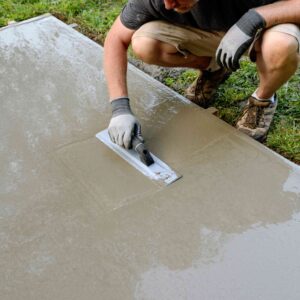Before applying for a job as a commercial cleaner, you should understand what this job involves. Janitorial workers generally work in commercial settings on a daily basis. The job description below will detail the responsibilities of a commercial cleaner. However, there are some differences between the two positions. Industrial cleaners, for example, clean on a larger scale. This article will discuss the job description for each of these positions.
Industrial cleaners are cleaners on a larger scale
Industrial cleaners have a lot of responsibilities, which is why they should have certifications, extensive training, and specializations. It is very important for industrial cleaners to understand how to handle hazardous chemicals and equipment while maintaining a high standard of safety. They must also be able to protect their coworkers. Business owners often hire industrial cleaners because they need a professional team to handle their business’s cleaning needs.
The size of the jobs they do is one of the major differences between a general cleaning company and an industrial cleaning service. Because large buildings are often home to bacteria and mold, industrial cleaning is more complex. This requires a larger crew of cleaners. Industrial cleaning services use specialized cleaning methods, different tools, and different chemicals than commercial cleaning companies. You should look for a cleaning company that provides a comprehensive range of industrial cleaning services.

Janitorial workers are cleaners who clean on a daily basis
Janitorial workers are responsible for many tasks, from simple floor sweeps to cleaning up spills. These cleaners are part-time employees who help in the office during work shifts, and when there are unexpected messes. Although commercial cleaning services can do a variety of cleaning tasks you will want to hire a company that has extensive experience in janitorial services.
Depending on the position, a high school diploma or GED is typically required. Many employers also provide on-the-job training. Employer-sponsored programs will likely offer safety training in addition to classroom instruction. You may need additional training in the workplace or knowledge about OSHA standards depending on your career goals. You will likely be exposed to hazardous materials such as acids and corrosives.
If you’re considering a career in janitorial services, there are many benefits to doing so. In addition to boosting employee morale, a clean office space improves the appearance and health of the workplace. A large office space can be busy for a company so it may require more than one person to keep it clean. Professional janitorial services have all the experience and training to kill bacteria and mold.
Janitorial workers are cleaners on a larger scale
Janitorial workers are cleaners who work on a large scale, as their name suggests. They perform cleaning tasks on buildings and a variety of other surfaces, such as public spaces, offices, and healthcare facilities. A janitorial franchise may specialize in cleaning specific types of spaces such as schools and professional offices. Others specialize in large-scale projects like construction areas. These workers have access to a variety tools and supplies to complete their jobs.
Commercial janitorial service is essentially the same thing as residential janitorial, but on a larger scale. Janitorial services provide daily cleaning for large buildings, and their workers have less specific expertise than those working in residential settings. They are more efficient and produce consistent results on a larger scale. While commercial cleaning services tend to be more specialized, they’re always ready to go when the job requires a large amount of cleaning.
Janitorial workers can also be employed to clean industrial areas. This requires high-pressure washing equipment and driving industrial trucks. You will need to be strong in order to operate high pressure washers and trucks. Industrial janitorial services may also involve the removal of hazardous chemicals or learning about OSHA standards. In some cases, you will need to be physically fit as well as have exceptional manual dexterity.




